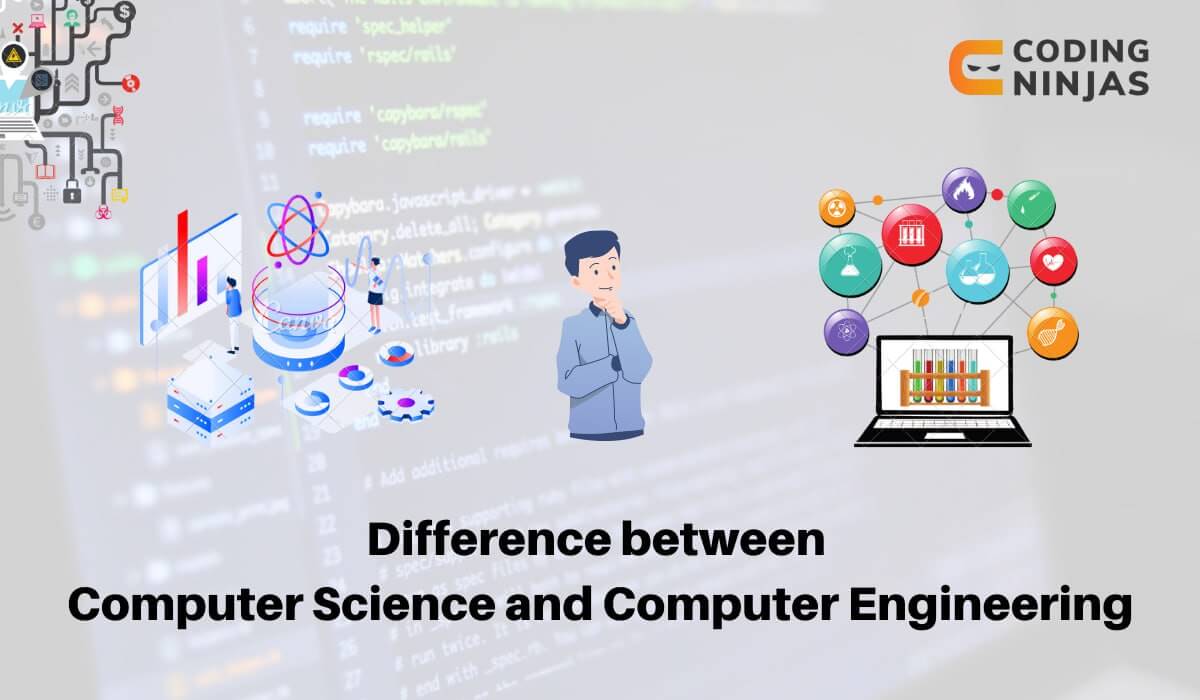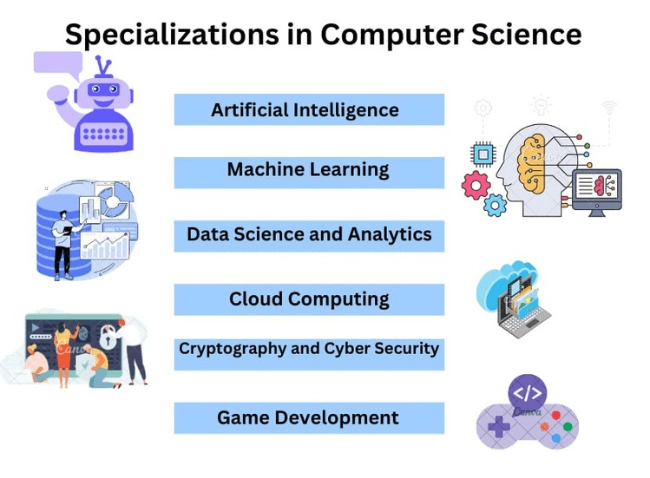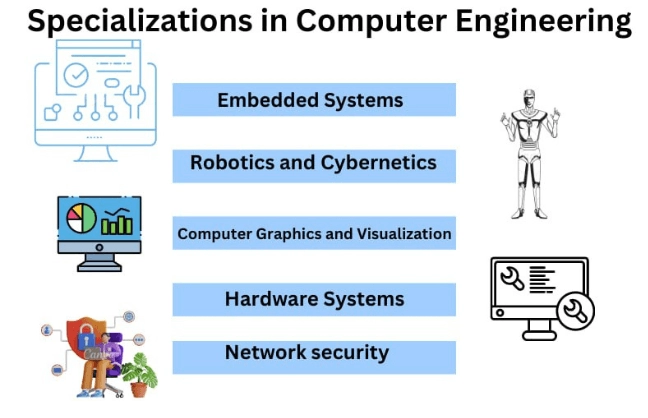Introduction
In the world of technology, Computer Science and Computer Engineering play important roles, but they have some key differences. Computer Science is the study of algorithms, data structures, programming, and the theoretical foundations of computation. Computer Engineering, on the other hand, combines principles of computer science and electrical engineering.

In this article, we will discuss each of them in brief. We will guide you with every detail that you need to know about the difference between computer science and computer engineering.
Also see, Adhoc testing
What is Computer Science?
Computer Science is the study of computers. It includes the study of computational systems, algorithms, and programming languages like C, C++, Java, and Python. Computer science involves designing and software development. It uses algorithms and data structures to improve efficiency in various IT domains.
In simple words, computer science deals with the software aspects of computers. On the other hand, computer engineering deals with the hardware aspects.
Specializations in Computer Science
Following are the widely known specialization in the Computer Science domain:

Artificial Intelligence
Artificial Intelligence is a field in the computer science domain. It focuses on designing and implementing intelligent algorithms. These algorithms are then implemented on machines, which, in turn, makes an artificial intelligence capable of making decisions like a human being.
Machine Learning
Machine Learning is also a field associated with the computer science domain. As we have discussed in AI, we will need to create algorithms to make artificial intelligence. To create these algorithms, machine learning helps us greatly. We have various techniques, like supervised, unsupervised, and reinforcement learning. It helps us make an algorithm suitable to teach, test, and validate the machines.
Data Science and Analytics
Data Science and Analytics are fields that are used in both the IT and management sectors. An industry needs Data science and analytics understanding to lay the right course of action. To use data science and analytics, knowledge of computer science and statistics is needed. This can be done using algorithms with various statistical models.
Cloud Computing
Cloud Computing is an important field of computer science that is trending nowadays. It is because of the ease of use associated with it. With the help of cloud computing, establishing an industry is very simple and feasible. Most of the necessities can be fulfilled if you just know how to use the cloud efficiently. So with these many advantages, cloud computing is gaining popularity. It is also converted into a demanding subfield of computer science.
Cryptography and CyberSecurity
The need to secure the connection and cloud data is important. To do so, we need cryptography and cybersecurity. As we know, with critical information uploaded on the internet, hackers might try to attack and steal our information. To secure this information, we need to encrypt the messages so that the data can’t be hacked or deleted afterward. And to ensure these hackings are not repeated again and again, you need cyber security.
Game Development
With the development of technology and for entertainment purposes. The gaming and entertainment industries have also taken a leap toward advancing the gaming world. It, in turn, introduces gamers to a new overall experience.
Skills and Knowledge Needed in Computer Science
The study involves both practical and theoretical domains of computers and computing systems.
-
Programming Languages: Programming languages are used to develop applications and software. It is used in problem solving into logical steps known as Algorithms.
-
Database and Data Management: In computer science, database and data management are widely needed. It provides knowledge related to storing, retrieving, organizing and analyzing data.
-
Data Structures and Algorithms: Data structures and algorithms help in designing optimized algorithms. It is also used in problem-solving and improving the performance of our computer programs.
-
Software Engineering: Students should learn how to design, develop and maintain software. It covers the entire Software Development Lifecycle(SDLC).
-
Artificial Intelligence and Machine Learning: The study of AI and ML is very important. It is because it enables the development of intelligent algorithms that are capable of making their own decisions. It leads to more efficient and effective decision-making and problem solving capabilities.
-
Cybersecurity: The study teaches how to protect computer systems, networks and sensitive data. They can be attacked by unauthorized access and damage caused by cyber-attacks.
Also read, V Model in Software Engineering
Advantages of Computer Science
The advantages of computer science are as follows:
- Innovation Driver: Computer science is a catalyst for technological advancements, fostering innovation across industries.
- Problem-Solving Skills: Computer scientists develop strong analytical and problem-solving skills, applicable beyond the realm of computing.
- Versatility: The principles of computer science find applications in diverse fields, including healthcare, finance, entertainment, and more.
- Automation: Computer science enables the automation of routine and repetitive tasks, increasing efficiency and reducing manual workload.
- Global Connectivity: Computer science plays a pivotal role in connecting people worldwide through the internet, facilitating communication and collaboration.
- Data Analysis: Computer science empowers professionals to analyze large datasets, extract meaningful insights, and make informed decisions.
Disadvantages of Computer Science
The disadvantages of computer science are as follows:
- Job Complexity: Certain computer science roles demand a high level of expertise, making the field challenging for newcomers.
- Dependency Concerns: An overreliance on computers and technology may lead to vulnerabilities, such as cybersecurity threats and system failures.
- Ethical Dilemmas: Issues like data privacy, security breaches, and algorithmic bias raise ethical concerns in the field of computer science.
- Rapid Technological Changes: The fast-paced evolution of technology requires continuous learning and adaptation, posing challenges to professionals to stay updated.
- Health Implications: Prolonged exposure to screens and sedentary work can contribute to health issues, including eye strain and musculoskeletal problems.
- Environmental Impact: The manufacturing and disposal of electronic devices contribute to electronic waste, posing environmental challenges associated with computer science.





